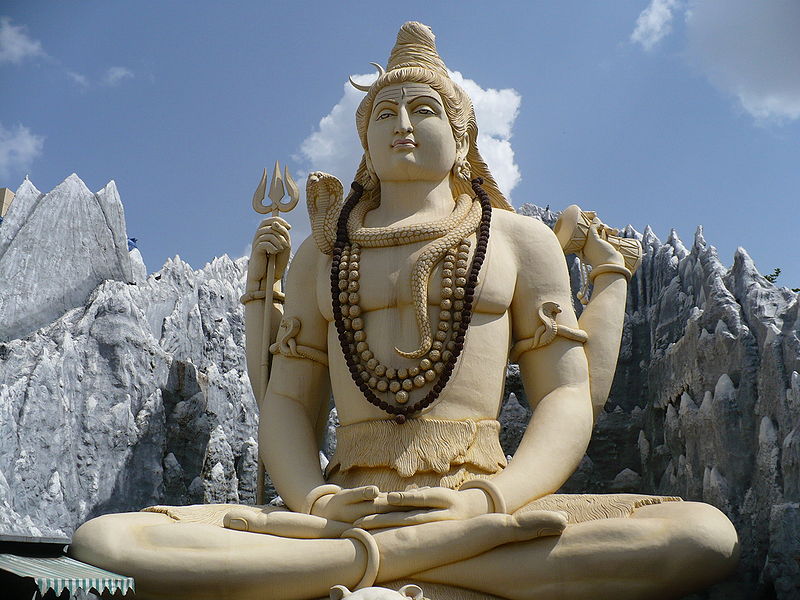Śiva: Difference between revisions
Jump to navigation
Jump to search
Pablo Sender (talk | contribs) No edit summary |
Pablo Sender (talk | contribs) No edit summary |
||
| Line 1: | Line 1: | ||
[[File:800px-Bangalore_Shiva.jpg|right| | [[File:800px-Bangalore_Shiva.jpg|right|320 × 240 pix]] | ||
'''Śiva''' (devanāgarī: शिव) is a [[Sanskrit]] word meaning "auspicious one" is a major [[Hinduism|Hindu]] deity, part of the [[Trimurti]]. He is the '''destroyer of evil''' or transformer. Shiva is depicted as a yogi, living a life of a sage at Mount Kailash. In images, he is represented as immersed in deep meditation or dancing upon the demon of ignorance. He is usually worshipped in the abstract form of [[Liṅgam|Shiva linga]]. | '''Śiva''' (devanāgarī: शिव) is a [[Sanskrit]] word meaning "auspicious one" is a major [[Hinduism|Hindu]] deity, part of the [[Trimurti]]. He is the '''destroyer of evil''' or transformer. Shiva is depicted as a yogi, living a life of a sage at Mount Kailash. In images, he is represented as immersed in deep meditation or dancing upon the demon of ignorance. He is usually worshipped in the abstract form of [[Liṅgam|Shiva linga]]. | ||
Revision as of 19:44, 2 April 2012
Śiva (devanāgarī: शिव) is a Sanskrit word meaning "auspicious one" is a major Hindu deity, part of the Trimurti. He is the destroyer of evil or transformer. Shiva is depicted as a yogi, living a life of a sage at Mount Kailash. In images, he is represented as immersed in deep meditation or dancing upon the demon of ignorance. He is usually worshipped in the abstract form of Shiva linga.
